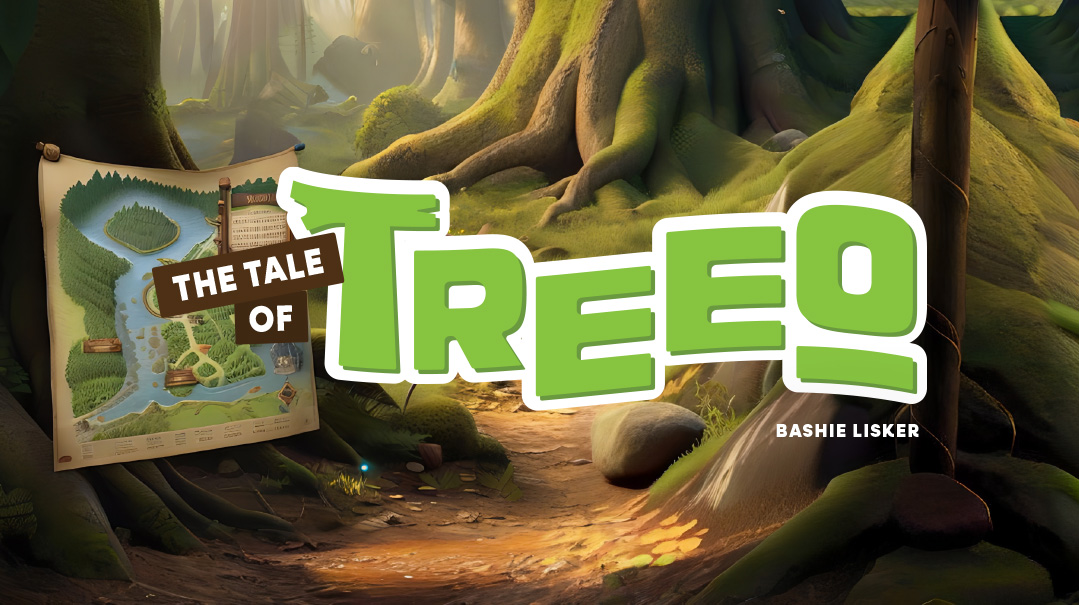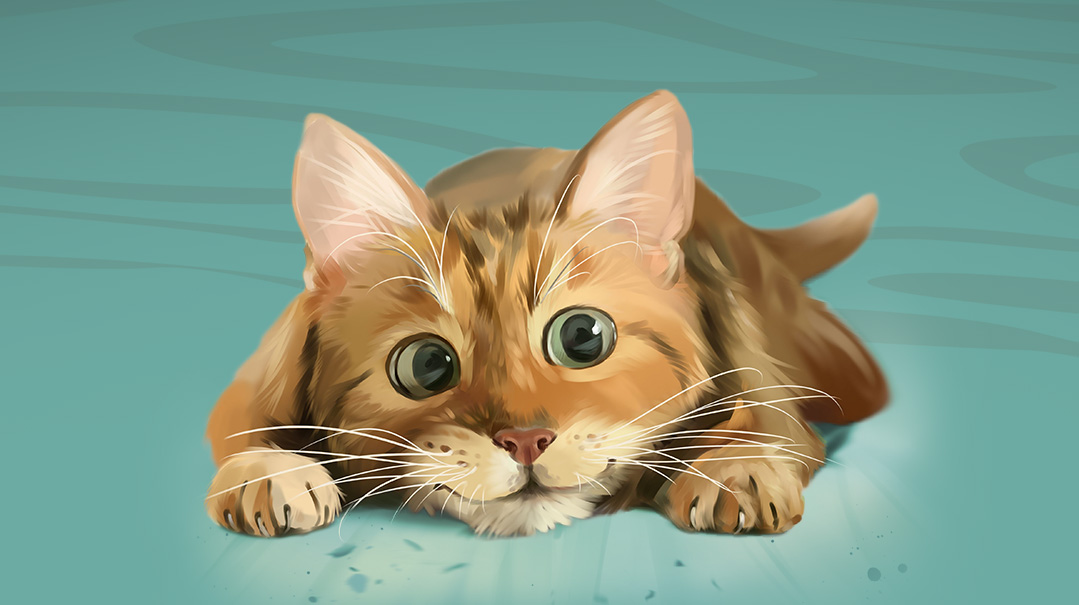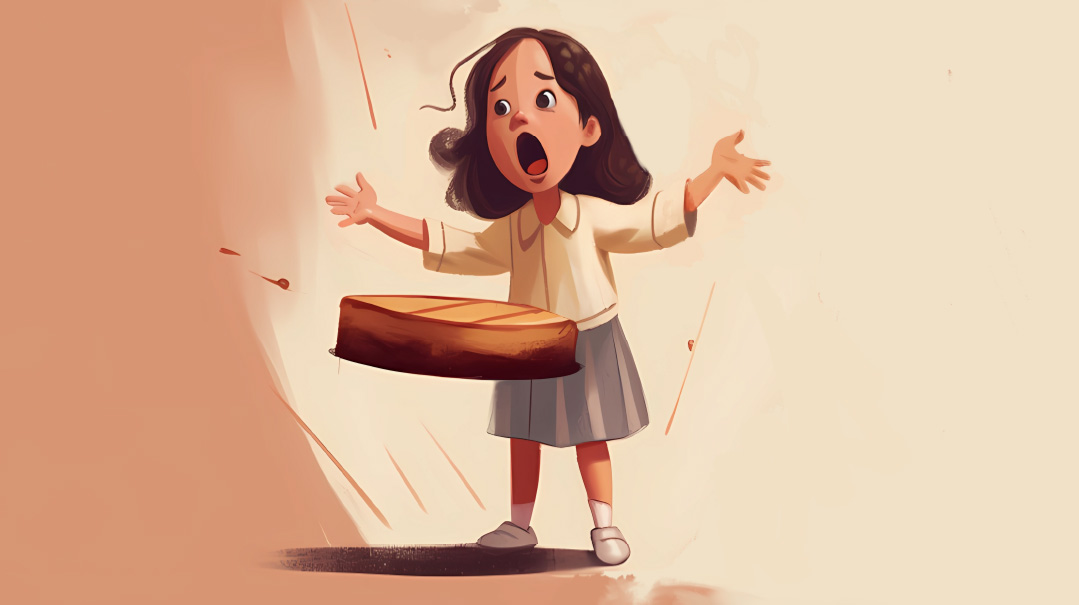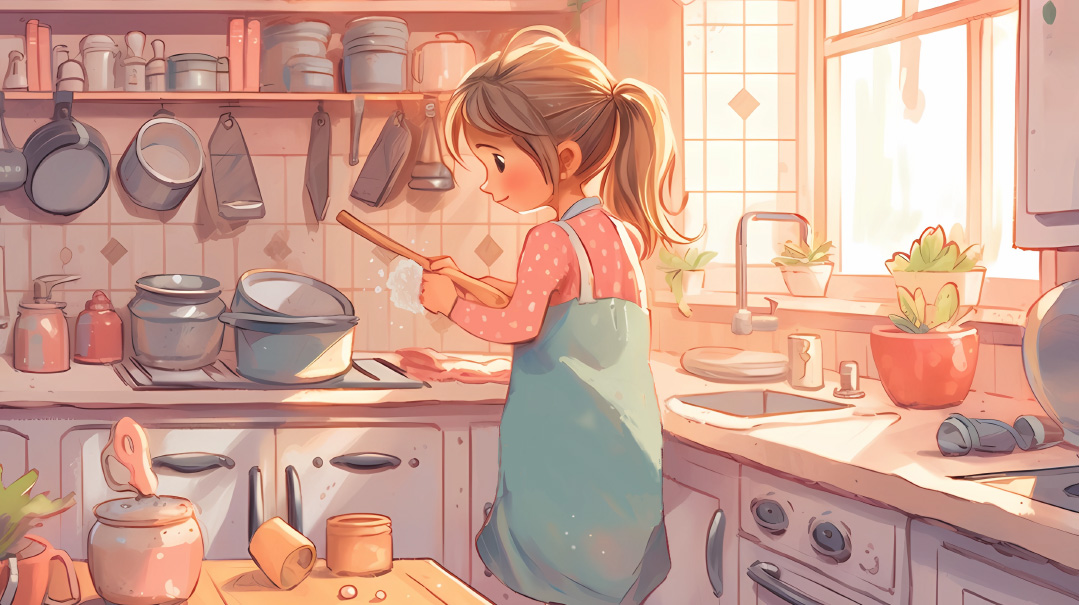The Storytellers: Part 2

She couldn’t miss the disappointment in their voices, the mocking tone, the mean edge.

Margalit swatted at the tear trickling down her face. Why did her great-great-grandmother have to die? No one had understood her like Abuelita. No one. She rose from the grass where she’d been lying and went back into the house, where everyone was gathered to discuss the arrangements for the levayah and the shivah.
She didn’t expect anyone to notice her. And they didn’t. But seeing all the faces — her grandparents and aunts and uncles, her much-older siblings, made Margalit feel pretty overwhelmed. Their family was legitimately huge — and not everyone had even arrived yet.
And also, she thought, feeling guilty for even thinking about this at such a time, for even feeling sorry for herself on this day of all days, so many of these family members had criticized her personality and interests at some point in the past, sharing their unwanted opinions: You know what you need? You need more friends. Be like a normal girl your age, not such a dreamer, always with your head in the clouds. Why can’t you be like your classmates? Why are you always thinking? Why can’t you just relax and be a regular teenager? Just go out with the girls and have a good time. Join a club. Take it from me….
The words floated through her mind, picking up dust like a funnel cloud. It was all well-meaning, of course. But it left her feeling flattened. Only Abuelita had understood her….
She took a seat in the corner and closed her eyes.
She had just returned from her trip to England, the girls in her class surrounding her, the air of expectation practically crackling around them.
“What did you buy?”
“Did you bring back something good?”
“Did you get us something?” Giggles. Snippets of laughter.
Always with the shopping, the buying, the things. Margalit felt like she was inside a balloon, the air limited and hard to breathe.
Margalit had bought something, though, something she could show them.
“Margalit, earth to Margalit!”
She opened her eyes. Her aunt was standing above her, good-natured disapproval in her eyes. “Good morning, Sunshine,” her aunt trilled. “Everything okay? Dreaming again, are you?”
Margalit nodded, summoned a half-smile to her lips. Before she could even answer, someone had called her aunt away, and she slipped back into the memory.
She had hesitated just a second before pulling the silver chain out from where it was hidden in the collar of her shirt. The girls leaned in to see the pendant.
“A bird?”
“A bird necklace?”
She couldn’t miss the disappointment in their voices, the mocking tone, the mean edge.
“I’d have thought you’d get something with Big Ben on it,” one of them said.
“Or one of those red phone boxes!”
“A double-decker bus…”
And so it went. A merry-go-round of confused comments, disappointed observations, thinly veiled insults.
Finally, one of the girls turned to Margalit, “Really, Margi, you’re so funny.”
Margalit hated when people called her Margi. And also, she was fairly certain that “funny” wasn’t a compliment. Not in this case….
“It’s a starling,” Margalit said, fingering the bird charm. “When I was in England, I saw a murmuration of starlings; it was the most astounding and beautiful thing I have ever seen.”
She could see from their faces — smooth, blank — that they didn’t understand her. But they were listening. That was something, wasn’t it?
“The starlings all fly together in these tremendous clouds,” she explained. “The flocks take different shapes, like a choreographed dance.” Now they weren’t even listening anymore. Instead, the girls were looking at each other. Their eyes said, “Margalit is so weird.” Their faces said, “She’s so different.” Their mouths… their pursed lips…. They made mumbled, hurried excuses. And they flitted away. Not unlike starlings, Margalit thought, noting the irony.
So Margalit didn’t tell them why she’d bought the necklace as her souvenir from England. To her, those starlings were unity: stronger together than alone. Right now, she was alone. But she was still part of the whole. And one day, everyone else would know it, too.
Smadar was stuffing things into her suitcase when she heard her father’s voice coming from down the hall. “I think we should give it to her now,” he was saying, rather loudly, she thought. There was a murmur — assent? — from her mother and then her father’s voice again. “She should have something of hers. Bring it on the trip… finally figure it out… appropriate time.” Some of his words weren’t discernable. Then he said some more things she couldn’t hear. But if there was any doubt that her parents were talking about her, it was cleared up when her mother said, “Well, maybe it will connect her to something bigger than herself, open her world a little…”
Ugh, Smadar thought. I guess they didn’t forget that conversation with my teacher. She hated thinking that her beloved and wonderful Mrs. Lewin basically thought she was shallow. But, at the same time, it was something she thought of herself, too. And everyone meant well, didn’t they?
Her thoughts were interrupted by the sound of her father’s soft footsteps plodding down the hall in his worn leather moccasin slippers. He was on his way to her room, and she had approximately 15 seconds to rearrange her face so it didn’t look like she was always eavesdropping (which it seemed she was) these days. She leaned in toward her suitcase, busying herself with refolding her clothes, just to buy herself a little more time. Finally, she looked up.
Her father was standing in the doorway. In his hands was a wooden box.
“For you,” he said, holding it out. “It’s… it’s from Abuelita,” he added, choking up a little.
Brows wrinkled in confusion, Smadar looked at her father, a question in her eyes. “When…”
He smiled. “When I visited her in Panama last year… She said she wanted you to have this.”
Smadar stood, spreading her hands over her skirt, smoothing the wrinkles. She walked toward her father, toward Abuelita’s mysterious gift. He placed it in her hands.
It was about the size of one of those variety boxes of Wissotzky tea someone had once brought her family from Israel, but its weight surprised her. The sides were plain and unadorned, but when Smadar beheld the top, she couldn’t help but inhale sharply. It was ornately engraved with flowers and vines and even several birds.
She traced a tentative finger over the fine engravings. They were smooth to the touch as if a thousand fingers before hers had followed the patterns on the lid. “What is it?”
Her father looked surprised for a moment. “You know… I really don’t know. Everything was so rushed. She handed it to me and said I should give it to you at the right time, and that was that. Now feels like the right time…” Tears were leaking from her father’s eyes. His voice was too choked for him to continue.
Smadar’s heart clenched. Abba never cried. “It’s beautiful, Abba,” she said. “I’m so touched. Thank you!” She carefully placed the box on her bed and threw herself into her father’s arms, wrapping him in a big hug, hoping her actions would convey what her words could not.
It was only later, after more tears had spilled and dried and spilled and dried that Smadar remembered the wooden box waiting on her bed. She lifted it, and with hands that she noticed were now trembling, and tried to raise the lid.
It would not open.
to be continued...
(Originally featured in Mishpacha Jr., Issue 940)
Oops! We could not locate your form.







